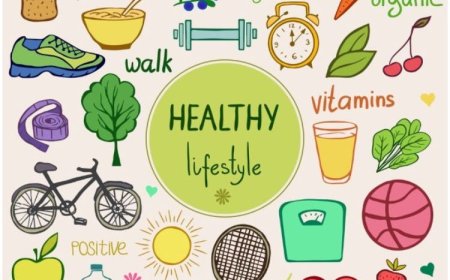Understanding the Number of Calories in Food: A Comprehensive Guide
Introduction When it comes to fitness and health, understanding the number of calories in the food we consume is crucial. Whether you're aiming to lose weight, gain muscle, or maintain your current physique, knowing how many calories you're eating can help you achieve your goals. In this blog, we'll delve into what calories are, how they impact your body, and provide practical tips on managing your calorie intake.

What Are Calories?
Calories are units of energy. They measure the energy that food provides to your body. The energy is used to fuel all bodily functions, from basic activities like breathing and maintaining body temperature to more strenuous activities like running or lifting weights. The number of calories you need daily depends on various factors, including age, sex, weight, height, and activity level.
How to Calculate Your Daily Caloric Needs
To determine how many calories you need each day, you can use the Basal Metabolic Rate (BMR) formula. Your BMR is the number of calories your body needs to perform basic life-sustaining functions.
BMR Calculation for Women:
BMR Calculation for Men:
After calculating your BMR, you need to multiply it by an activity factor to get your total daily energy expenditure (TDEE).
- Sedentary (little or no exercise): BMR × 1.2
- Lightly active (light exercise/sports 1-3 days/week): BMR × 1.375
- Moderately active (moderate exercise/sports 3-5 days/week): BMR × 1.55
- Very active (hard exercise/sports 6-7 days a week): BMR × 1.725
- Super active (very hard exercise/physical job): BMR × 1.9
Common Foods and Their Caloric Content
Fruits
- Apple (1 medium): 95 calories
- Banana (1 medium): 105 calories
- Orange (1 medium): 62 calories
Vegetables
- Broccoli (1 cup): 55 calories
- Carrot (1 medium): 25 calories
- Spinach (1 cup): 7 calories
Proteins
- Chicken breast (100g): 165 calories
- Salmon (100g): 206 calories
- Eggs (1 large): 78 calories
Grains and Legumes
- Rice (1 cup, cooked): 206 calories
- Quinoa (1 cup, cooked): 222 calories
- Lentils (1 cup, cooked): 230 calories
Snacks and Treats
- Almonds (1 ounce): 160 calories
- Chocolate bar (1.5 ounces): 218 calories
- Potato chips (1 ounce): 152 calories
Tips for Managing Calorie Intake
1. Track Your Food Intake
Using a food diary or a calorie-tracking app can help you become more aware of what you're eating and how many calories you're consuming.
2. Read Nutrition Labels
Always check the nutrition labels on packaged foods to understand the calorie content and serving size.
3. Opt for Nutrient-Dense Foods
Choose foods that are high in nutrients but lower in calories, such as fruits, vegetables, lean proteins, and whole grains.
4. Control Portion Sizes
Be mindful of portion sizes to avoid consuming more calories than you intend to.
5. Balance Your Macronutrients
Ensure you're getting a good balance of carbohydrates, proteins, and fats to maintain energy levels and support overall health.
6. Stay Hydrated
Sometimes thirst is mistaken for hunger. Drinking water regularly can help control calorie intake by keeping you hydrated and feeling full.
Conclusion
Understanding the number of calories in food and how they contribute to your overall energy balance is key to managing your fitness and health goals. By being mindful of your calorie intake, choosing nutrient-dense foods, and staying active, you can create a sustainable and effective approach to maintaining a healthy lifestyle. Remember, it's not just about the number of calories but the quality of the food you eat that makes a difference. Happy eating and stay fit!
What's Your Reaction?

























































































